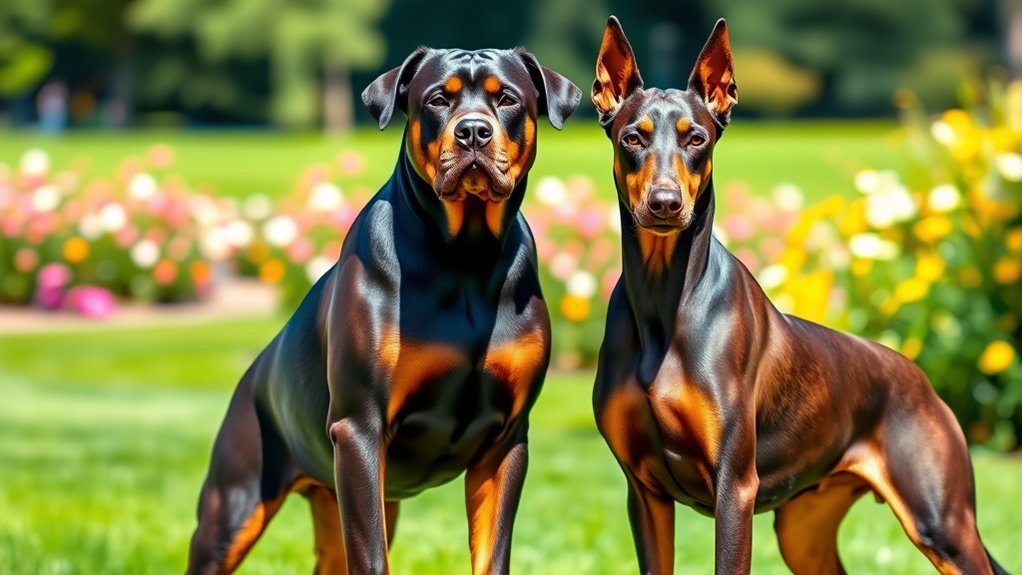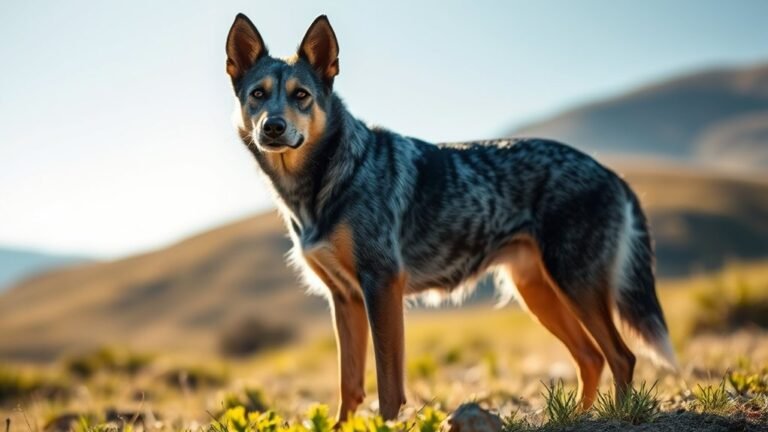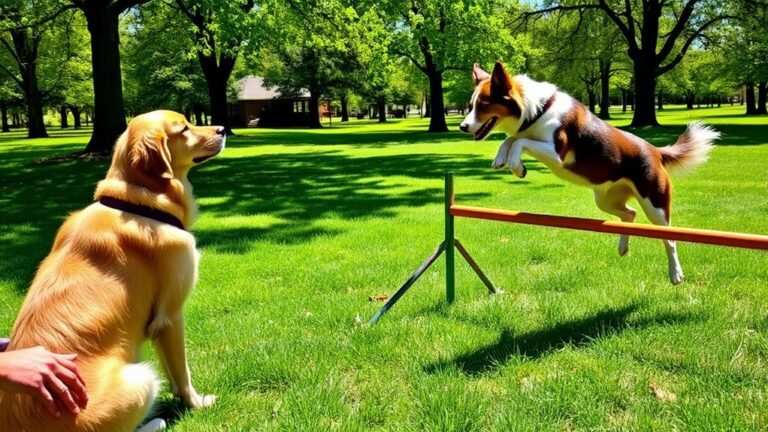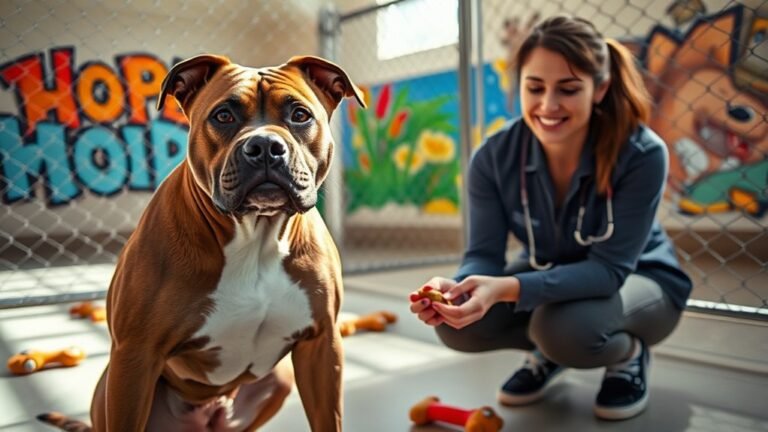From Rottweilers to Dobermans: 15 Best Guard Dogs to Train
Rottweilers and Doberman Pinschers are two of the best guard dogs you can choose. They are loyal and smart, which helps keep your home safe. But there’s more to think about than just how protective they are. Each dog breed has its own special traits that can change how you feel as an owner.
It’s important to find the right guard dog for your needs. Proper training can make them even better at protecting your home, and it can help them bond with your family. Let’s look at some great options for guard dogs and see which one might be the best fit for you!
Key Takeaways
Rottweilers and Dobermans are great guard dogs. They are loyal and smart, which makes them easy to train.
Regular exercise is important for guard dogs like German Shepherds and Belgian Malinois. Playing with them helps keep them happy and healthy.
Starting socialization early is a must for breeds like Doberman Pinschers and Staffordshire Bull Terriers. This helps them grow up friendly with people and other pets.
Guard dogs such as Alaskan Malamutes and Australian Cattle Dogs need consistent training and fun activities. This keeps them from getting bored and acting out.
Strong breeds like Bullmastiffs and Great Danes can be great companions. They also help keep unwanted visitors away.
Rottweiler
Rottweilers make great guard dogs. They’re loyal and protective. They’re also very smart, which helps with training.
Training your Rottweiler is important. It helps you both trust each other and grow your bond. Start with simple commands and then move on to harder tasks. This will help your dog feel safe and confident.
Taking care of your Rottweiler is key too. They need to stay active. Rottweilers thrive when they exercise and play with their owners.
Keeping their mind and body busy stops them from getting bored and prevents bad behavior. When you spend time training and caring for your Rottweiler, you create a devoted pet.
This pet will protect your home and be a loved member of your family. With the right care and training, your Rottweiler will shine.
Doberman Pinscher
Doberman Pinschers might look tough, but they’re very loyal and smart dogs. They make great guard dogs because they’re alert and protective. If you want a safe companion, a Doberman could be a good choice.
Training a Doberman is important. They do best with clear rules and regular commands. Start socializing them early to help them grow into friendly and balanced dogs.
A well-trained Doberman can be both a protector and a loving family member.
Some traits that describe Doberman Pinschers are loyalty, alertness, and kindness towards their families.
With proper training and social time, you can build a strong bond with your Doberman. They can become not just a guard dog, but a beloved part of your family.
German Shepherd
If you want a dog that’s strong and smart, look no further than the German Shepherd. These dogs are loyal and protective, making them great for homes and jobs. Here are three important things to keep in mind:
- Temperament Traits: German Shepherds are confident and brave. They’re easy to train, so they make good friends and protectors.
- Training Techniques: Use positive reinforcement and clear commands when you train them. This helps build a strong friendship and makes sure they know what to do.
- Versatility: Whether you need a loving family pet or a skilled working dog, the German Shepherd can adapt to what you need.
With the right training and care, this breed won’t only keep your family safe but also help you feel at home.
Bullmastiff
The Bullmastiff is a big, friendly dog known for being strong and loyal. They’ve a natural instinct to protect, making them great guard dogs. But they’re also calm and loving with their families.
To understand a Bullmastiff, remember they’re brave when needed but very affectionate with the ones they love. Training a Bullmastiff is important. Use consistent methods and reward them for good behavior. Positive reinforcement helps build trust between you and your dog.
Socializing your Bullmastiff is also key. This means introducing them to different people and places. It helps them feel confident and relaxed in new situations.
With the right care and training, Bullmastiffs won’t only keep you safe but also become a cherished part of your family.
Enjoy the special bond you can have with a Bullmastiff and relax knowing you’re protected while having a loving companion by your side.
Belgian Malinois
The Belgian Malinois is a loyal and smart dog that can guard your home in a unique way.
Unlike the Bullmastiff, this breed is known for being quick and intelligent. If you train your Malinois well, it can be a great buddy for fun activities together.
To get the best from your Belgian Malinois, remember these points:
- Obedience Training: Teach your dog basic commands. This helps keep them safe and makes them responsive to you.
- Agility Exercises: Set up fun obstacle courses. This helps your Malinois stay fit and improves their coordination.
- Socialization: Introduce your dog to different places and people. This will help build their confidence and adaptability.
With time and the right training, your Belgian Malinois will become a loyal protector and a dear friend.
Boxer
Boxers are active and fun dogs. They make great guard dogs because they’re both protective and friendly. Their loyalty shines through, and they love being part of the family.
When training your boxer, stick to clear rules and always praise them when they do well. This helps them learn good behavior while using their energy positively. Boxers are smart and want to make you happy, so training will help them know who’s a friend and who’s a stranger.
With a little effort, your boxer can be a caring protector and a loving buddy. Enjoy the special bond you share with your boxer!
Akita
Akitas are strong dogs known for their loyalty and protectiveness. They form a close bond with their families and have a dignified and brave nature.
If you’re thinking about getting an Akita, here are some important things to remember:
- Protective Nature: Akitas are good at guarding their families. They naturally want to keep their loved ones safe.
- Training: They need consistent and patient training. Akitas do best when they have clear rules and respect.
- Socialization: It’s important to socialize them early. This helps them grow into friendly and well-rounded dogs.
With the right training, you can channel their loyalty and strength. An Akita can become a great friend and protector in your life.
With time and care, you’ll build a strong bond of trust and companionship!
Cane Corso
Cane Corsos are strong and loyal dogs. They make great protectors for your home. Understanding how they act is important. Cane Corsos are smart, loving, and very devoted to their families. However, they can be a bit shy around people they don’t know.
Training your Cane Corso is key. Start training early and use positive reinforcement. This means giving them praise or treats when they do something good. This helps them learn and trust you.
Training sessions are a great way to bond with your Cane Corso. As you work together, your dog will become a well-mannered protector.
They’ll be ready to keep you and your loved ones safe.
Giant Schnauzer
The Giant Schnauzer is a smart and confident dog. They’re great at guarding and have a strong presence. This breed can protect your family while also being loving and loyal.
With the right training, you can make the most of their natural skills.
Here are three important tips:
- Socialization: Let your Giant Schnauzer meet different people and see new places early on. This helps them feel confident.
- Positive reinforcement: Give treats and praise when they do well in training. This makes learning fun for them.
- Consistency: Use the same commands and routines. This helps your Giant Schnauzer know what to expect and helps build trust.
With good training, the Giant Schnauzer can be a fantastic guard dog and a great friend.
Pembroke Welsh Corgi
Pembroke Welsh Corgis are small dogs with big hearts. They’re great at watching over your home. Their smart brains and alert nature make them good watchdogs.
Corgis are friendly but also protective. They’ll alert you when something seems off, helping you feel safe.
To keep your corgi happy and healthy, regular exercise is important. Take them for daily walks or play with them. This keeps their bodies fit and makes their minds sharp, helping them stay alert.
If you want a loyal friend, a Pembroke Welsh Corgi is a great choice. They love being part of a family and bond closely with their owners.
You’ll find them to be both loving pets and strong protectors.
Siberian Husky
Siberian Huskies are beautiful and full of energy. They can be great guard dogs too. With the right training, they can be excellent protectors.
Here’s what to know about training your Siberian Husky:
- Smart Dogs: Huskies learn things quickly. They respond well to friendly, positive feedback.
- Friendly Nature: They love meeting new people, but they also need to know when to be alert and protective.
- Loyal Companions: They form strong bonds with their families. They’ll keep an eye on you and your home.
By understanding their traits, you can help them grow into loving and protective companions.
With time and effort, you can enjoy their unique spirit and have a loyal friend by your side.
Staffordshire Bull Terrier
Staffordshire Bull Terriers are known for their strong build and lively personality. But did you know they can also be great guard dogs? With proper training, these loyal dogs can protect you and your home.
To make the most of their natural skills, it’s important to focus on training them. Start with basic obedience training and socialization. Positive reinforcement, like treats and praise, helps them learn and strengthens your bond. When they know what you expect, they’ll be more ready to protect you.
Don’t forget, these dogs need regular exercise. A tired Staffordshire is a happy and balanced dog. Daily walks and playtime make a big difference in their behavior.
Alaskan Malamute
If you want a strong and loyal guard dog, the Alaskan Malamute is a great pick.
These dogs are tough and loving, making them a good fit for a family protector.
Training them well is important for a happy life. Here are three things to remember:
1. Training: Alaskan Malamutes like positive praise and social time when they’re young.
Start training early to help them grow into well-behaved adults.
2. Exercise: These dogs need lots of activity to feel good.
Take them for long walks and play with them regularly to keep them healthy and happy.
3. Being Watchdogs: With good training, Malamutes can alert you if something seems off.
They’re natural protectors of your home.
With love and effort, you’ll create a strong bond with your Malamute.
They’ll bring both safety and friendship to your life.
Australian Cattle Dog
The Australian Cattle Dog is a lively and smart breed. These dogs make great guard dogs because they love a challenge and enjoy being around people. Training your Australian Cattle Dog can help you build a strong friendship with your pet.
These dogs are loyal and alert. They watch over their family and have natural protective instincts. Australian Cattle Dogs learn commands quickly, which makes training fun and easy. They want to please their owners, so teaching them is often a joyful experience.
Since they’ve a lot of energy, Australian Cattle Dogs need regular exercise. If you don’t keep them busy, they can get bored. Finding ways for them to play and learn will keep them happy.
With regular training and social skills, your Australian Cattle Dog can be a dependable protector and a beloved part of your family. They’re always ready for new adventures with you.
Great Dane
Great Danes are big dogs with big hearts. They’re known for being gentle and friendly, making them great companions.
But don’t let their size fool you; they can also be good guard dogs.
Here are some reasons why Great Danes are great guardians:
- Big and Kind: Great Danes are friendly. They love to be around people and are very affectionate.
- Protective Nature: These dogs have a strong instinct to protect their homes. Their size alone can scare off any unwanted visitors.
- Smart and Trainable: Great Danes are clever dogs. They learn quickly and can be trained to guard well.
With their calm and loving nature, Great Danes can be both your protector and a cherished family member.
They blend strength and kindness perfectly.
Frequently Asked Questions
What Are the Grooming Needs for These Guard Dog Breeds?
Grooming needs differ for guard dog breeds. If your dog has a short coat, brush them once a week. For those with long hair, you will need to brush them more often to keep their fur neat and clean. Always check what type of coat your dog has to make sure they look good and stay healthy!
How Much Exercise Do These Dogs Require Daily?
These dogs need a lot of exercise each day. They thrive on activities that get their hearts pumping. Regular brisk walks and fun playtime are great ways to keep them happy and healthy. This exercise helps them feel good, both in their bodies and minds. Make sure you give them plenty of chances to run and play for a balanced life.
Are These Breeds Good With Children and Other Pets?
Some dog breeds are great with kids and can get along well with other pets too. With the right training and socialization, many guard dogs can also fit into family life. These dogs can form strong bonds with children and create a loving home atmosphere. It’s important to teach everyone how to interact with the dog, so everyone feels safe and happy.
Make sure to pick a breed that matches your family’s needs and lifestyle. With care and attention, you can have a friendly and fun companion for your children.
What Is the Average Lifespan of These Guard Dogs?
Guard dogs usually live between 8 to 12 years. Their health can affect how long they live. Genetics and care play a big role. You should give them good food and take them to the vet regularly. Taking care of your guard dog helps it live a longer, happier life!
How Can I Socialise My Guard Dog Effectively?
To help your guard dog meet new people and pets, use positive reinforcement. This means giving your dog treats or praise when they behave well. Start slow. Introduce your dog to one new person or pet at a time.
Create simple and fun experiences for your dog. Take walks in busy places. Allow them to see different sights and sounds. This builds their confidence. Always stay calm and happy to encourage your dog to do the same.
When your dog is relaxed around others, reward them. This helps them learn that meeting new friends is a good thing. Keep practicing in different places. With time, your guard dog will feel comfortable around many people and pets!







